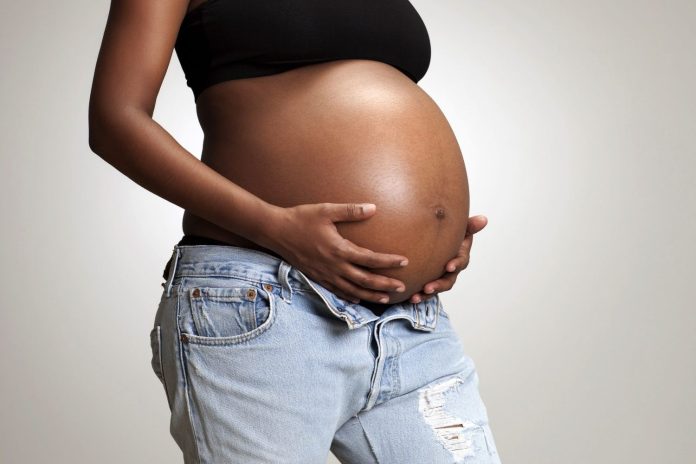Maternal and child health Survival; understanding social determinants for innovative intervention
By Noimot Balogun
The joy of becoming a mother and holding one’s newborn in their hands has often been described as being unexplainable or unquantifiable. Unfortunately, not every mother is opportune to enjoy the feeling. In Nigeria, 1 in every 22 women dies from pregnancy-related complications. Little wonder the Yorubas say “eku ewu omo” (meaning congratulations on surviving the dangers of childbearing in literal terms), following the birth of a child.
In 2020, Nigeria had the third highest maternal mortality globally with 1047 deaths recorded per 100,000 live births in 2020 alone. Despite considerable efforts, Nigeria continues to record high maternal and newborn mortality. This shows the need to fill the gap of “misses and near-misses” for maternal and child health survival as we approach the 2030 timeline for Sustainable Development Goals. Though, various reasons for maternal and child morbidity and mortality exist; social determinants of health such as religious and cultural beliefs, educational background, informal support systems influence and poverty are reemerging threats to survival.
Reports show that women in communities still utilize multiple sources of healthcare during pregnancy up till delivery; health facilities, worship houses, traditional birth homes “TBHs”, auxiliary shops, and some even deliver at home. Some of the reasons for the health choices include; preference for instalment payment as done in TBHs, preference and advice from older nursing mothers, proximity to households, and cultural beliefs among others. A report from research conducted in Edo State revealed that the women mentioned that they utilized TBHs because they found it more comfortable to use. Some of the women also believed that some maternal health problems are not “ordinary” and require “spiritual backing”. Hence, they seek maternal care in faith homes with poor referral systems rather than health facilities.
It therefore can be said that the informal support and information a pregnant woman receives during her motherhood journey is a high reflection of the health choices she makes. With out community-based social system, a pregnant woman is faced with the hurdle of sieving out the plethora of information given to her by family memebers, well-meaning neighbours, and the community at large. For example, her choice of delivery may be influenced by “success stories” about an unskilled birth attendant who is “very good” at handling complicated deliveries without verification. It may also be due to an assumption, affirmation or religiously induced taboo about cesarian section, induction or other modern-day maternal procedures. This experience is equally pronounced during postnatal care as the new mother is made to take a myriad of concoctions to encourage breast milk secretion, wean the child, or clean the umbilical cord.
The costs associated with formal clinical care are another bottleneck in the sustainable utilization of healthcare during pregnancy and delivery. As we speak, the formal health system at the 3rd, 2nd and 1st tier levels do not have an installment payment systems apart from insurance – which is not affordable for most. In a country where the population largely pays out of pocket to access healthcare, the expenses of seeking health may further tilt households into poverty and with more seemingly urgent expenses, health gets pushed to the lowest priority; regular antenatal visits, scheduling for laboratory tests and purchase of drugs may also be pushed to later or till emergencies occur. Invariably, the burden of care is pushed back to the formal system when the women are rushed in as emergencies due to complications. Thus deliberate efforts must be made by the health providers in value chain to meet women at these various degrees of vulnerability. This is the idea behind the MamaBase registry, and the #WeMenForHer campaign by the Maternal Reproductive Health Research Collective is set to achieve as its broad mandate.
The MamaBase registry is a digital registry to collate the data of pregnant women in Lagos State, starting at the Primary Health level, to facilitate the subsequent monitoring of the women from point of engagement till delivery. This is in line with the Alma-Ata Declaration for Universal Health Coverage in promoting healthcare at the last tier of health which connects most with the public. Through evidence-based research and work with other stakeholders to address these challenges, this initiative will help generate insights and data to provide solutions to the gaps in effective healthcare delivery at this critical tier of care.
Primary health care is an effective and all-inclusive approach of providing all forms of quality healthcare to individuals ranging from health promotion, treatment and rehabilitation. It remains the key element to addressing the social determinants that affect our health equity and achieving universal health coverage. This is why MRHRC is working through its different initiatives to integrate stakeholders’ actions through research, strategic partnerships, and collaborative interventions. The MamaBase registry will be coming to communities all around Nigeria, starting with Lagos State. This is a needed step towards ensuring maternal and child health, one registration at a time.
*Dr. Noimot Balogun writes from Maternal and Reproductive Health Research Collective, (MRH Collective www.mrhrcollective.org).






